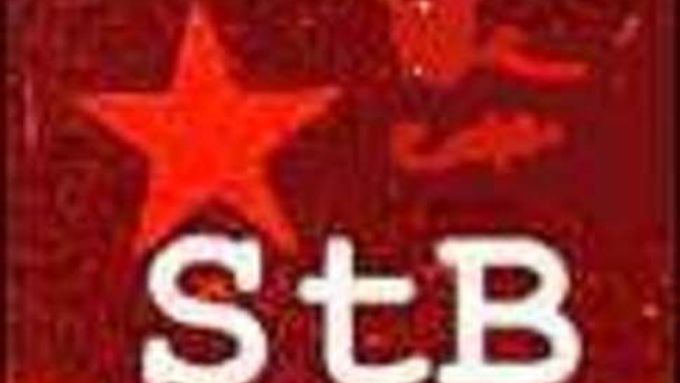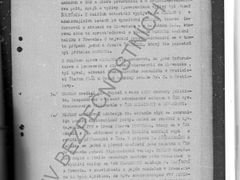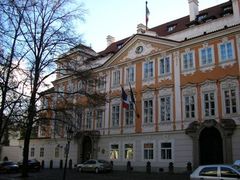Prague - The State Security (StB), the plainclothes secret police force of communist Czechoslovakia, managed in the 1950s to learn the code for the safe in Prague's French embassy and repeatedly checked the safe's content.
This fact was brought to light by Karel Kurzweil, who accidentally came across this information while he was studying the StB's documents stored in the Security Services Archive in order to find out more about the StB's attempts to persuade his mother to work for the agents.
Mrs. Kurzweilová was an acquaintance of the French embassy's cultural attache Pierre Dejean. The safe invaded by the secret police was his own.
„By that time, my mother was working as a secretary in the Turkish embassy. The StB wanted her to get them the code for the embassy's safety deposit box," said Kurzweil who flee from Czechoslovakia to France after the Soviet invasion in 1968 - presently, he lives with his wife near Paris. He added that his mother never helped the police with anything.
Read more: Declassified archive shows StB kept track of Jews
„No hablo Latin"
The documents show that in 1952, agents of the communist police put their hands on four letters written by the secretary of Pope Pius XII. for Slovakian priests. The StB was especially interested in this kind of documents, as Vatican was considered „the evil empire" by the communist regime.
„Each letter has the Pope's personal message attached to it," says a report written on 22 April 1952. However, the agents did not get much out of them: „As the letters in question are written in Latin, we cannot evaluate their significance, so we ask for their translation," says the report.
Catch 77
Safe break-ins had a code-name „Operation 77".
The safe was ransacked again in 1958, as described by another document. „In the night from 28 to 29 August 1958, the operation 77 was conducted in the French embassy's building in Prague against the safe of Press and Cultural attache Pierre Dejean," says the report.
Read more: Small but effective: Communist secret police dissected
„Neither during the implementation nor after the conclusion of the operation 77 appeared facts that would de-conspire the implementation of the action," the success of the break-in is described in the report in a rather clumsy bureaucratic language typical for state bureaus of that era.
Following three pages describe what documents were discovered and, of course, taken pictures of. „The documents in question address the political, economical and religious situation in Slovakia," the report explains.
„However, the safety deposit contained also private correspondence as well as money, gold and other valuables of total worth of roughly 50,000 Czechoslovak crowns," adds the report. For comparison, the average salary in the late 1950s was somewhere between one and two thousand.
The agents who conducted the operation informed their superiors that Dejean enabled some Czechoslovak citizens to communicate with people in the Western bloc through diplomatic correspondence. „From Dejean's notes we have discovered 20 connections we were not aware before," says the report.
The documents do not reveal how the agents managed to obtain the code, however the presence of Communist insiders in the embassies of the western states was a commonplace in the Eastern Bloc.


